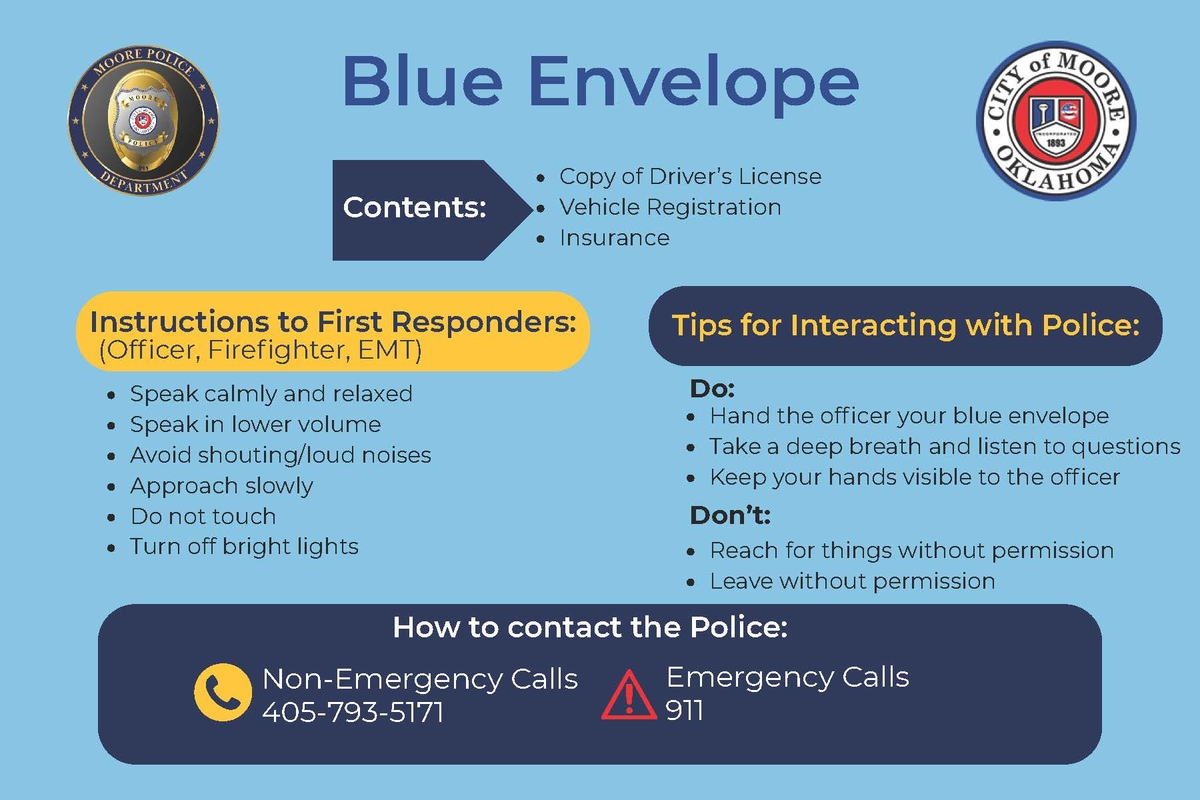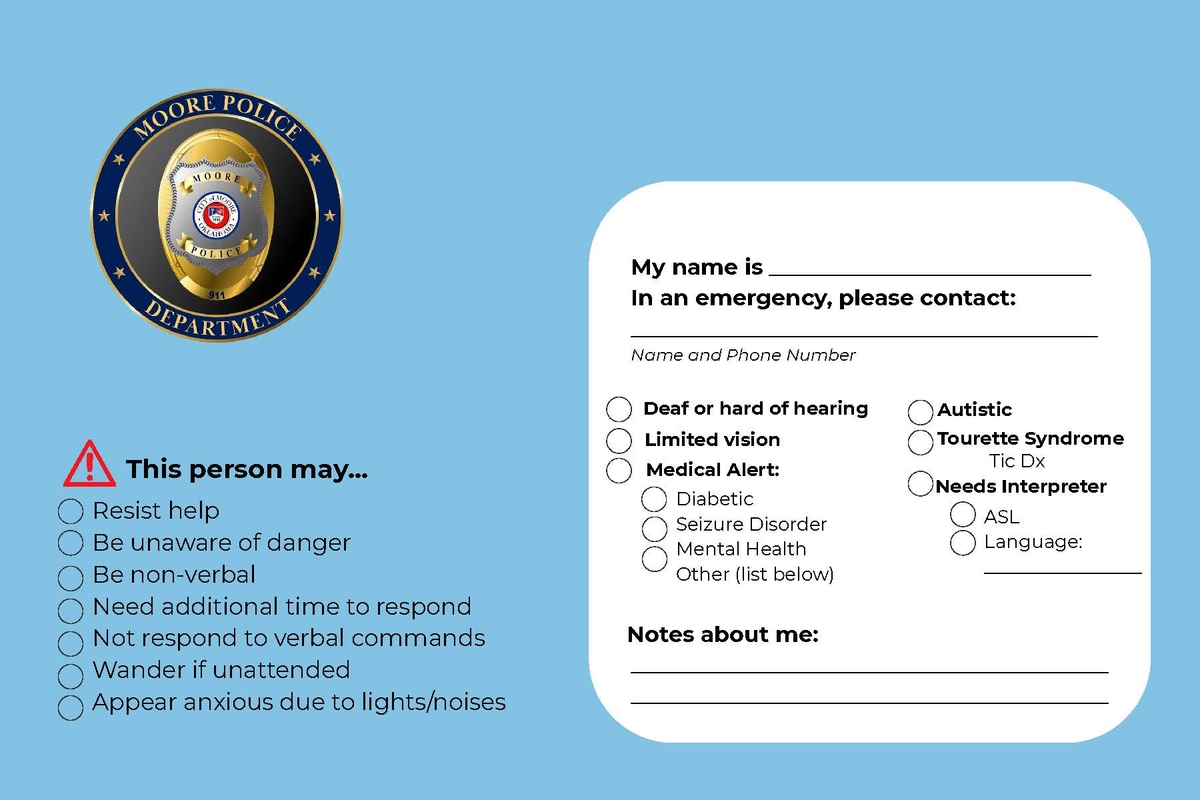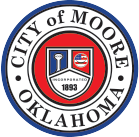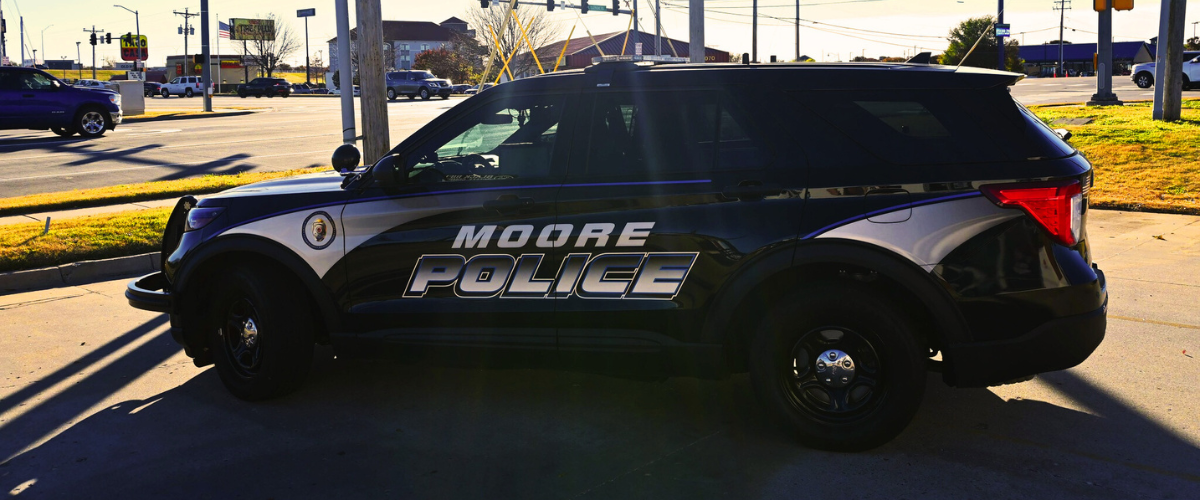Blue Envelope Program
The Blue Envelope: Helping First Responders Support Individuals with Disabilities
The Blue Envelope Program is designed to make interactions between law enforcement, first responders, and individuals with disabilities safer and more supportive. The envelope holds important documents, such as a copy of the driver’s license, vehicle registration, and proof of insurance, that can be handed directly to an officer during a traffic stop or emergency situation. This envelope will note the disability while reminding citizens that they are still expected to follow the law. Officers will make every effort to provide accommodations, but will still carry out their duties. This information helps first responders deliver appropriate assistance quickly and effectively.
Why the Blue Envelope Matters
For individuals who are deaf or hard of hearing, autistic, or living with medical or neurological conditions, unexpected encounters with police or first responders can be stressful. Bright lights, loud noises, or sudden instructions may heighten anxiety and make communication more difficult. The Blue Envelope serves as a bridge, providing responders with immediate context about the individual’s needs.
Guidance for First Responders
The program also includes instructions to help officers, firefighters, and EMTs create calmer, safer interactions. Recommended approaches include:
- Speaking calmly and at a lower volume
- Avoiding shouting or sudden loud noises
- Approaching slowly and without physical contact
- Turning off bright lights when possible
By following these steps, first responders can reduce stress for individuals and improve communication during a critical moment.
Tips for Individuals
Those using the Blue Envelope are encouraged to:
- Hand the officer the Blue Envelope upon request
- Keep their hands visible at all times
- Take a deep breath and listen carefully to questions
They are also reminded not to reach for items or leave the scene without permission.
Personal Information & Medical Alerts
On the outside of the envelope, individuals can provide critical personal and medical information, including:
- Name and emergency contact details
- Communication preferences (such as the need for an interpreter or use of ASL)
- Medical alerts (diabetes, seizure disorders, mental health conditions, etc.)
- Notes about behaviors responders might observe, such as delayed responses, wandering, or heightened anxiety from lights and noises
Building Understanding and Safety
The Blue Envelope Program is a proactive way to foster trust and safety. It acknowledges the unique challenges some individuals face in emergencies and provides both parties with tools to navigate those situations with greater care and awareness. The Blue Envelopes will be available at Police Records 117 E. Main St, Moore, OK 73160.
This is a voluntary program offered by the Moore Police Department and may not be implemented or recognized by all law enforcement agencies.
For non-emergency police contact, call 405-793-5171. In emergencies, always dial 911.



